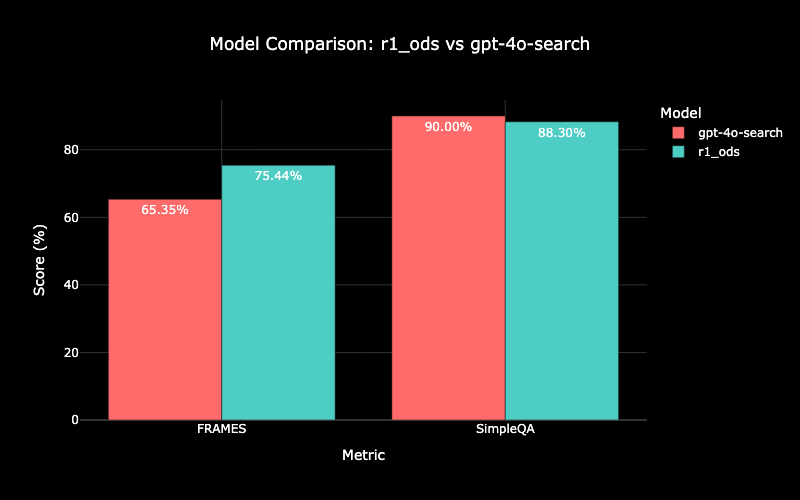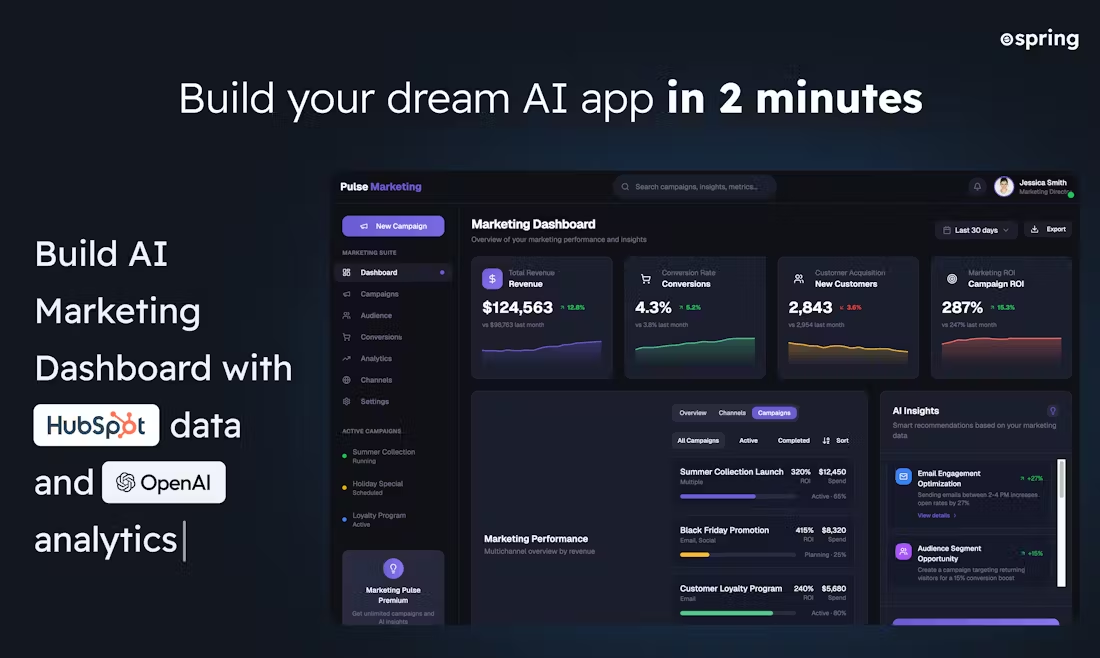OpenDeepSearch: an open source search tool that supports intelligent reasoning
General Introduction
OpenDeepSearch is an open source search tool developed by the sentient-agi team. It combines Large Language Modeling (LLM) and Intelligent Reasoning Agents to allow users to search the web for information and get accurate answers in a simple way. The goal of this tool is to make search more open and intelligent, without relying on closed commercial systems. It supports both fast and deep search modes and is suitable for answering simple questions or complex multi-step questions. The project is hosted on GitHub and is free for anyone to download, use, or contribute to improvements. The current version is updated through March 2025 and demonstrates the team's continued commitment to open source AI technology.

Function List
- It supports quick search and can give concise answers in a short time.
- Provides a deep search mode suitable for complex problems requiring multi-step reasoning.
- Integration of open source large-scale language models to improve the intelligence of search results.
- Use semantic sorting techniques to ensure that the information returned is more relevant.
- Open source code, user customizable models and features.
- Supports integration with ecosystems such as SmolAgents to extend reasoning capabilities.
- Provides a local interface for easy testing and interaction.
Using Help
The installation and use of OpenDeepSearch is not complicated and is suitable for users with basic programming knowledge. Here is a detailed guide to help you get started quickly.
Installation process
- Preparing the environment
You will need a computer with Python 3.10 or later installed. You can check the version with the command:
python --version
If the version is too low, go to the Python website and download the latest version.
- cloning project
Open a terminal and enter the following command to download OpenDeepSearch:
git clone https://github.com/sentient-agi/OpenDeepSearch.git
Once the download is complete, go to the project folder:
cd OpenDeepSearch
- Setting up a virtual environment (optional but recommended)
Create a virtual environment to avoid conflicts with other projects:
python -m venv venv
Activate the virtual environment:
- Windows.
venv\Scripts\activate - Mac/Linux.
source venv/bin/activate
- Installation of dependencies
Run the following command in the terminal to install the required libraries:
pip install -r requirements.txt
If you run into problems, make sure your pip It's the latest version:
pip install --upgrade pip
- Configuring API Keys
OpenDeepSearch requires API keys for a number of external services, such as SERPER, OPENROUTER and JINA. you need:
- Sign up for an account at Serper, OpenRouter and Jina.
- After obtaining the key, create a
.envfile, fill in the following:SERPER_API_KEY=你的密钥 OPENROUTER_API_KEY=你的密钥 JINA_API_KEY=你的密钥
Save the file to the project root directory.
How to use
Once installed, you can experience OpenDeepSearch in two ways: the command line or the local interface.
Command Line Usage
- Run a simple search
Enter the following code into your terminal and search for "What is the fastest land animal?" :
from opendeepsearch import OpenDeepSearchTool
search_agent = OpenDeepSearchTool(model_name="openrouter/google/gemini-2.0-flash-001")
result = search_agent.search("最快的陆地动物是什么?")
print(result)
The system returns answers such as "The cheetah is the fastest land animal, reaching speeds of up to 120 kilometers per hour.
- Enable Deep Search
If the problem is complex, such as "Compare the speed of a cheetah and a lion", you can add parameters:
search_agent = OpenDeepSearchTool(model_name="openrouter/google/gemini-2.0-flash-001", pro_mode=True)
result = search_agent.search("比较猎豹和狮子的速度")
print(result)
It will analyze in detail and return comparison results.
Local Interface Usage
- Launch Interface
Runs in the terminal:
python gradio_demo.py
The system generates a local link (e.g. http://127.0.0.1:7860), copy it to your browser and open it.
- Search Operation
- Enter a question in the input box, such as "AI Trends 2025".
- Select the mode (default or deep search).
- Click "Submit" and wait for the results to be displayed.
- You can adjust the model or the sorting method and the interface will be updated in real time.
Featured Function Operation
- Switching Models
In the code or interface, you can change other models, such as<code>anthropic/claude-3-opus-20240229</code>. Simply modify themodel_nameParameters. - semantic ordering
Jina sorts by default, but can be changed to other sorters (e.g.<code>infinity</code>), set in the codereranker="infinity"The - Debugging and Improvement
If the results are not satisfactory, you can check the logs or adjust the parameters, such as increasing the search depth.
Installation and use are flexible, and you can tweak it to suit your needs. When you run into problems, go to GitHub and raise an issue, and the community will help answer it.
application scenario
- academic research
Students or researchers can use it to search for information related to a paper, such as typing in "Recent Advances in Quantum Computing" to get organized results. - Daily Enquiry
When you want to know "which coffee maker is the best", it quickly searches and gives you recommendations. - technology development
Developers can use it to test AI models or integrate them into their own projects.
QA
- Programming experience required?
Yes, basic Python knowledge is required for installation and command line use. But the interface mode is newbie friendly. - Is it free?
The project itself is free, but the API service may require a paid account. - Does it support Chinese?
Support, just type in a Chinese question and it will try to return a Chinese answer.
© Copyright notes
Article copyright AI Sharing Circle All, please do not reproduce without permission.
Related posts

No comments...




